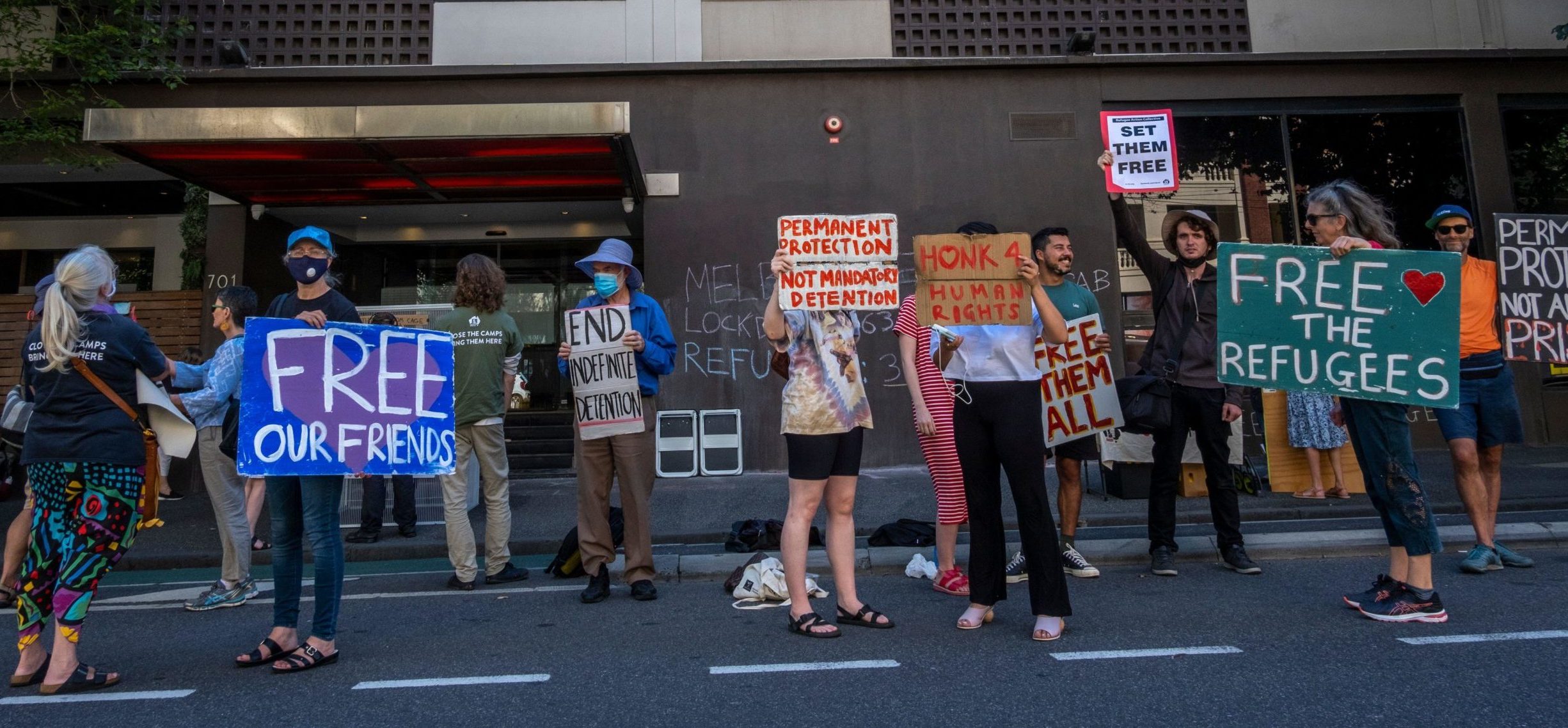
In a landmark decision, Australia’s High Court has ruled that indefinite immigration detention is unlawful–overturning a previous decision from 2004.
NZYQ v. Minister for Immigration, Citizenship and Multicultural Affairs & Anor
The case concerned a stateless Rohingya man (referred to as NZYQ) who faced the prospect of lifelong detention as no country would resettle him.
While the government argued that the Al Kateb High Court judgement of 2004–which ruled that the indefinite detention of a stateless man was legal so long as the government intended to eventually remove him–should remain law and justified NZYQ’s ongoing detention, the plaintiff challenged this conclusion. In particular, lawyers held that his detention was a breach of constitutional limits on detention, and that detention was not being used for its intended purpose–the removal of people–but rather, for the purpose of punishing refugees and migrants.
In the historic 8 November decision, the High Court ruled that because there was no real prospect for NZYQ to be removed from the country, his continued detention is unlawful and he must be released immediately:
“It is declared that, by reason of there having been and continuing to be no real prospect of the removal of the plaintiff from Australia becoming practicable in the reasonably foreseeable future:
(a) the plaintiff’s detention was unlawful as at 30 May 2023; and
(b) the plaintiff’s continued detention is unlawful and has been since 30 May 2023.
A writ of habeas corpus issue requiring the defendants to release the plaintiff forthwith.”
Observers were quick to celebrate the ruling. “Yesterday was a momentous day for human rights, for the rule of law, for protection of refugees and migrants” said Kon Karapanagiotidis, the CEO of the Asylum Seeker Resource Center.
Further Releases
The day after the ruling, Australia’s Minister for Foreign Affairs confirmed that the Rohingya man had been released from detention.
However, the implications of the ruling go much further than NZYQ. According to the solicitor general, up to 92 people who cannot be returned to their country of origin could have to be released, and the detention of 340 other detainees is also in doubt. As of 16 November, 83 people are reported to have been released.
The government, however, which has vocally opposed the release of detainees, announced on 16 November that it had introduced legislation to Parliament that would allow it to put additional restrictions in place–specifically for those with criminal records. This is reported to include imposing the use of ankle monitoring bracelets, and the power to impose strict curfews. “For the people who are released from detention … we have a simple message for them. We will set the strictest possible conditions for you. If you do not follow them, you will end up back in jail,” said the Home Affairs Minister, Clare O’Neil.
This announcement was immediately met with criticism from rights groups. “Every single day, Australian citizens who have been convicted of an offence re-enter the community after serving their time. For the government to suggest that migrants and refugees in the same position pose a different or greater risk is dangerous dog-whistling,” said Sanmati Vermi, the Acting Legal Director at the Human Rights Law Centre.


